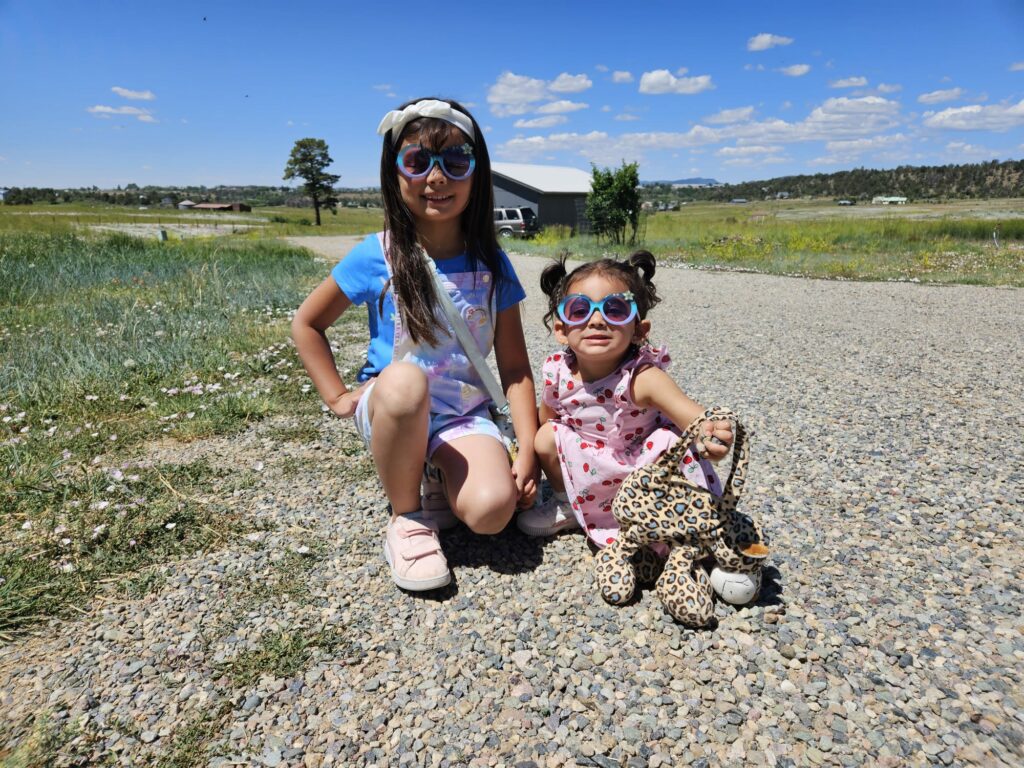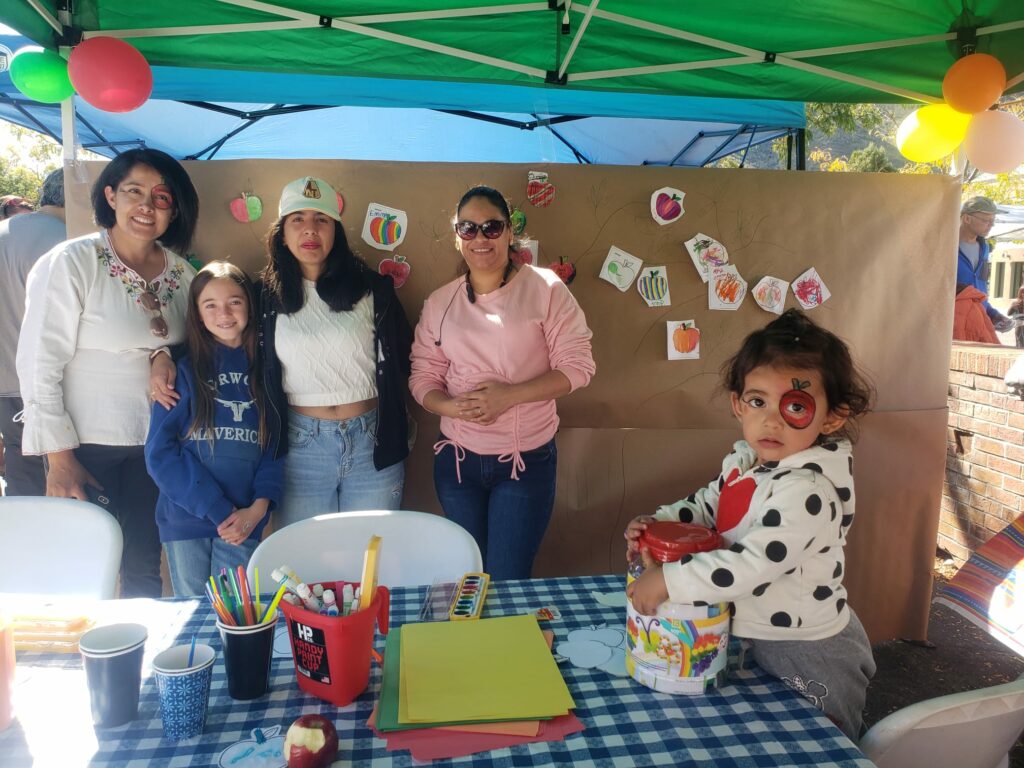Carolina loves her community, her family, and this place she calls home in La Plata County, Colorado. And she sees that many members of the community have similar experiences as her that go unseen. So she started organizing community members to work together in their shared fights with the Grupo de Cuidado Infantil (the Latin Community Child Care Group).
It started with a community survey put out by the La Plata Food Equity Coalition. They had many conversations, but one in particular stood out: What gets in the way of food security for you and your family? The answer for her and many others in her community was simple – access to child care. It’s difficult enough to find affordable, culturally competent care — but it’s even harder to access available care when you speak another language.
The kind of care she needed wasn’t available. In fact, child care isn’t available to 44% of La Plata County families. So, Carolina had to take her youngest daughter to work with her. While Carolina was working, her daughter was watching TV. It wasn’t ideal, but at least she was near her mother. Not everyone is able to work at home or bring their children with them — and even that can be an untenable balancing act.
Without access to essential early childhood learning opportunities, developmental delays started to show. Carolina’s daughter — 2 years old at the time — was still drinking out of the bottle and didn’t have access to other children. Carolina noticed, and the doctor pointed out, how she wasn’t developing appropriately. It hurt Carolina to see how this lack of choice negatively impacted her family. And it became clear how child care can be a pathway to success in all things.

Carolina reflected, “We know this is when our children are not getting what they need, and it hurts our heart that we can’t provide this. The majority of our community works in things that sometimes are not very well paid. So, a person earning $2,000 a month cannot pay $1,000 to care for one of [their] children.”
So Carolina did what she does best: She showed up with love for her family and community and helped bring people together, facilitating the Voces de la Comunidad group (The Latin Community Voice Group), and eventually creating the Grupo de Cuidado Infantil. Together, they just started talking and sharing their stories. As the groups met, worked together, and asked more questions, it became clear she wasn’t the only one struggling with food security because of rising child care costs.
“The recurring questions were, we can’t work, we don’t have enough money because we have small children at home,” Carolina said. And out of those conversations came The Grupo de Cuidado Infantil.
The impact of high-quality child care became even clearer to Carolina. Her oldest daughter, now 8, was able to enter Head Start and was understanding English at 18 months old. Her youngest daughter, without that access — in part because of the pandemic — had developmental delays, struggles with eating, and aggression. She was behind the path her older sister had access to.
And while all children develop differently, she’s sure that access to culturally appropriate, quality early childhood education would have benefitted her youngest and that there are too many others like her in the community who were not given an equal opportunity to thrive.

The Grupo de Cuidado Infantil advocates for equitable child care, recognizing the need for more changemakers and influential figures to drive systemic change. This advocacy has sparked a catalyst for change, bridging the entire community from the school to the government and nonprofits around the issue of child care. They are working to dismantle barriers and make the necessary changes for a more equitable childcare system. Together, they have created a strategic plan focused on affordability, accessibility, and cultural celebration.
Strategies within this plan include working with affordable housing to integrate early care and education centers, hiring local navigators to connect families to programs, ensuring documents are available in Spanish, creating a dual language program, engaging employers in supporting their workforce, and providing training sessions on diverse cultures.
“Importantly, the voice of those affected — the Latin community — takes center stage in this transformative process. By listening, including, and empowering those facing these challenges daily, we can generate impactful change,” said Tiffany Chacon, Latinx Early Care & Education Program Manager at Lat Plata Food Equity Coalition.
Their ideal is to foster a childcare system that celebrates diversity, respects traditions and provides every child with the foundation they need to flourish. Through their collective efforts, La Plata Food Equity Coalition and the Grupo de Cuidado Infantil seek to nurture change that ripples through generations, creating a community where all children can thrive.
Tiffany emphasized that the need for local community, state, and national change is urgent — a call that resonates beyond La Plata County.
According to the Century Foundation, with recent pandemic-era child care stabilization grants ending, “more than 70,000 child care programs — one-third of those supported by American Rescue Plan stabilization funding — will likely close, and approximately 3.2 million children could lose their child care spots.” The Foundation also found “that millions of parents will be impacted, with many leaving the workforce or reducing their hours, costing families $9 billion each year in lost earnings.”
This is why we need to tell our elected officials (by calling or emailing them) to pass $16 billion in emergency childcare funding now and advocate for a fully funded system.
It is time for all communities to show up with radical love to support our youngest community members and their families. It is time for a radical shift in how we approach early care and education, ensuring that every child, regardless of background, knows that they belong and has the chance to thrive and reach their fullest potential.